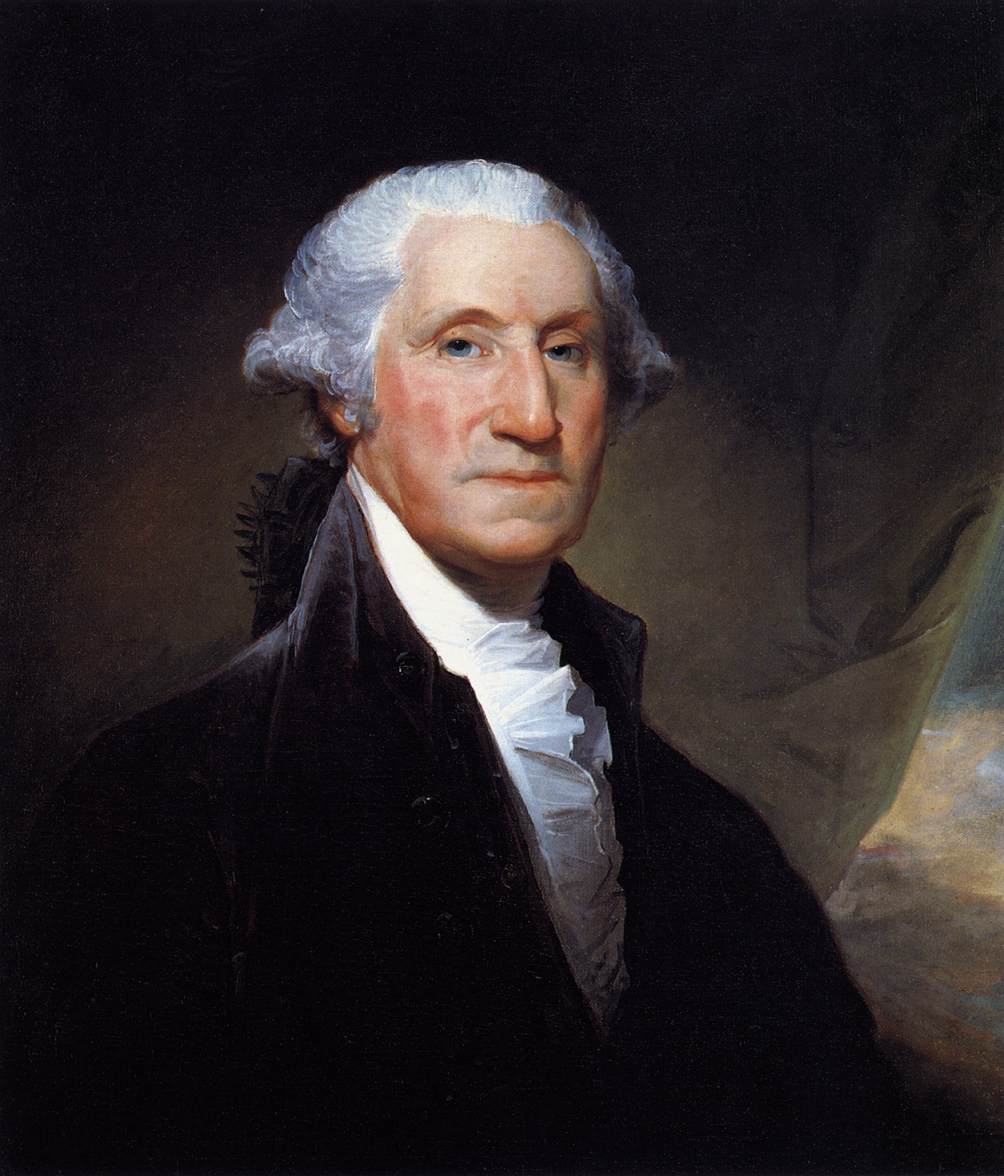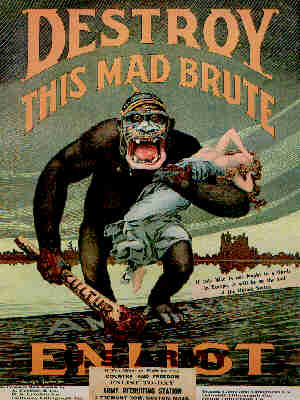Used in section this week: J. Edgar Hoover hones his later anti-civil-rights strategy as the FBI goes after Marcus Garvey. (In fact, the first black FBI agent was hired by Hoover to infiltrate Garvey‘s UNIA…what a victory for progress.) Speaking of which, if you haven’t been reading Caught in Between lately, CiB’s been collecting superlative black history links all month long, including items on Reconstruction, the Middle Passage, Juneteenth, Lynching, Harlem, and the Dred Scott Decision, among others. All worth a look, in February as in any other month.
Category: History
Happy President’s Day.


“As Mankind becomes more liberal, they will be more apt to allow that all those who conduct themselves as worthy members of the community are equally entitled to the protections of civil government. I hope ever to see America among the foremost nations of justice and liberality.” – George Washington
“If freedom of speech is taken away, then dumb and silent we may be led, like sheep to the slaughter.” – George Washington
“As the sword was the last resort for the preservation of our liberties, so it ought to be the first to be laid aside when those liberties are firmly established.” – George Washington
“Whenever I hear any one arguing for slavery I feel a strong impulse to see it tried on him personally.” – Abraham Lincoln
“People who like this sort of thing will find this the sort of thing they like.” – Abraham Lincoln
“It is not merely for to-day, but for all time to come that we should perpetuate for our children’s children this great and free government, which we have enjoyed all our lives.” – Abraham Lincoln
xXx and Elizabeth.
I can already see the sparks fly. Garth of Dark Horizons reports on the movie pairing you’ve all been waiting for: Vin Diesel and Dame Judi Dench. I know the Pitch Black sequels are set in space, but hopefully they can squeeze in a scene of the two of them simultaneously screaming from out the front windsheld of a car. In other Dark Horizons news, along the lines of K-19, director Kathryn Bigelow is now working on a historical film about the Scottsboro case, which could be quite interesting.
100% Americanism, for better or worse.

Also on the history tip, I found this while preparing for my sections this morning on John Higham’s Strangers in the Land and nativism in the 1920’s: Red Scare: An Image Database…plenty of anti-foreign, anti-radical, and anti-union cartoons from the end of World War I. And, along the same lines, here’s an intriguing collection of WWI propaganda posters, such as this anti-German poster to the right. Very helpful in class, particularly as they will augur our reading of John Dower’s War Without Mercy later in the term.
You got to give for what you take.
I should have posted this a few weeks ago, but it’s been sitting forlorn in the bookmark section. Freedom: A History of US, the American history-for-kids site I helped build over the holidays, is now online. (I’m listed as a “history consultant…” woohoo!) Content that readers might find particularly interesting includes the quick historical primers I wrote for the teachers’ section and the many sound clips throughout of various celebrities portraying historic Americans (scroll down for a full listing.)
Bottoms Up.
Via an old crew friend, famous drunkards battle it out. I woulda thought the British Bulldog could have taken down Burton.
Move out and stay low!
Speaking of social warfare, FPS privates take note: The 1.3 patch for Battlefield 1942 is now online, featuring, among other tweaks, faster loading maps and quicker sniper reloads (the latter being the only major gaming area in which Day of Defeat is still definitively superior.) And it’s almost time to take the road to Rome…
The Autobiographical Archives of Malcolm X.
After much negotiation, the Shabazz family donates the papers of Malcolm X to the Schomberg Center in Harlem. Excellent news, particularly for Columbia historians, who benefit from being next door to this fascinating new archive.
Card-Carrying Members?
Via a friend of mine in the program, Professors Eric Foner (with whom I’ve taken two classes) and Glenda Gilmore offer a rebuttal to Daniel Pipes’ recent list of academics who hate America. An article like this really doesn’t deserve a response but, simply put, Pipes is a moron. Reading any chapter of Foner’s recent Story of American Freedom — or any of his other books for that matter — belies Pipes’ ridiculous and dangerous charge of anti-Americanism. And finding fault with Dubya’s wag-the-dog Freudian fiasco in Iraq, a soon-to-be-military excursion that has already run roughshod over our Constitution, hardly speaks ill of anyone’s patriotism.
If anything, it’s egregiously anti-American for Pipes to earmark academics who should be constrained from the “outside.” A quote the Daniel Pipes of this world ought to consider: In the words of Cornel West, “To understand your country, you must love it. To love it, you must, in a sense, accept it. To accept it as how it is, however is to betray it. To accept your country without betraying it, you must love it for that in it which shows what it might become. America � this monument to the genius of ordinary men and women, this place where hope becomes capacity, this long, halting turn of the no into the yes, needs citizens who love it enough to reimagine and remake it.“
Gangs of Helms Deep.
Also from Follow Me Here, Salman Rushdie compares gang violence in Two Towers and Gangs of New York to developments in Iraq. Interesting points, but did we see the same Scorsese film? In both the initial and final gangland scenes, there’s hardly any sense of moral ambiguity. To the contrary, as I noted in this post, the Irish (Neeson/DeCaprio) forces are portrayed exclusively as maligned, freedom-loving immigrants, while the Nativist (Day Lewis) gang are portrayed as racist brutes. You’d never get the sense in Scorsese’s film that it was the former group that actually unleashed virulent hatred upon the city’s African-American population in July of 1863. I suspect this reading of Gangs has more to do with the close friendship between Rushdie and “The Band that Built America.” Or perhaps Rushdie saw the longer Scorsese cut of the film, which is rumored to be more nuanced.
